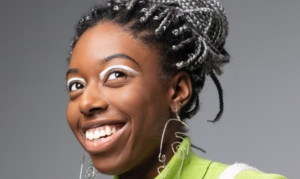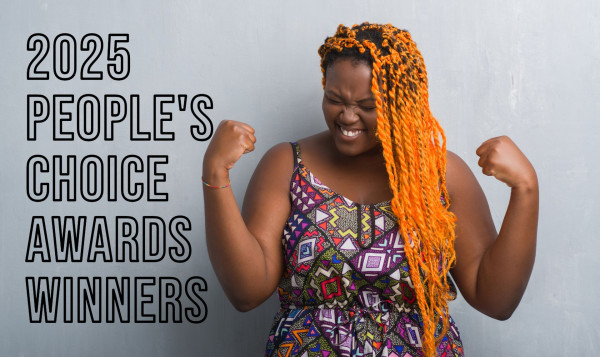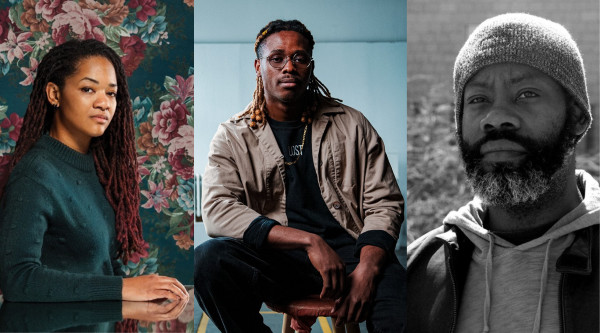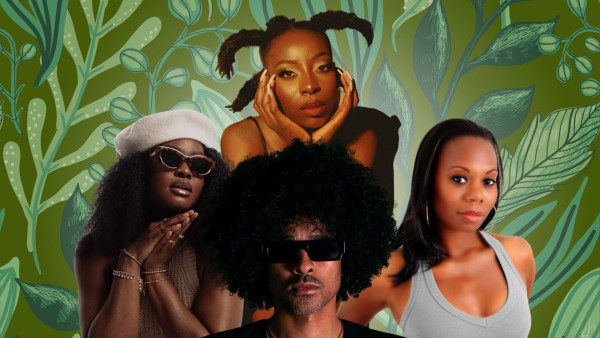“He has filled them with skill to perform every work of an engraver and of a designer and of an embroiderer, in blue and in purple and in scarlet material, and in fine linen, and of a weaver, as performers of every work and makers of designs.”
-Exodus 35:35
Some people go their entire lives without ever finding their true purpose. For those folks, life is a grind. The most they can hope for is affirmation in the form of a swollen bank account and a corner office with lots of natural light. Not to put too fine a point on it, but to find your purpose in time to beat the tedium of adulthood is a gift. Better yet, a blessing. Now I’m not the most ardent supporter of organized religion, nor do I spend time policing where people draw their inner strength and peace from. The Golden Rule, “do unto others as you would have done unto you”, is the only universal guiding principle I try to live my life by. But when you look at the work of renowned illustrator/designer Alexis Eke, as well as the upward trajectory of her career, how could you not contend that this is someone anointed by grace of some sort?
Like Michaelangelo’s Creation of Adam (Google it, you know the one), it would be reasonable to say that she’s been touched by the hand of God; filled with the skill to perform every work of a designer. A Black Canadian artist with work on magazine covers, books, buildings, and more recently, the Season 4 promotional posters for hit show and Black-ish spin-off Grown-ish, Eke makes no secret of the importance of faith in her personal and professional life. I had the opportunity to talk to her about her beginnings in the design field, the hand her Christian faith has had on her career, and how that faith influences her art today.
Can you talk a bit about your start in Illustration and design?
The journey began in my first year of university. It’s when I got really inspired to start my own design style and put myself out there in the industry. I challenged myself to make a piece once a week, no matter how complicated or simple it looked. To start the habit of constantly making art so that my style could develop. Experimenting with different shapes and colours is kind of how it began. After about a year or so, I started to see my style come out a lot more. I also started paying more attention to social media and posting more consistently. Through all the people liking and sharing my posts, I started to get more commissions. The commissions eventually got bigger and I continued to elevate from there. My style was a lot more graphic in the beginning but as time has gone by, it’s gotten more refined. Even my colour palette has changed to reflect more natural toned colours as opposed to how I started. I also have to credit my mom, an artist, for teaching me all the basics of drawing at a young age.
At what point did you become represented by the Canvas Agency and how did that whole relationship develop?
It started in my second year of university (2018) and was very natural. They saw my work and just wanted to have a conversation to see where things could lead. I wasn’t even aware that representation was even a thing that visual artists could have, so that was something I wanted to know more about. After a few conversations, I felt like we got along pretty well and we decided to officially start working together in November of 2018. It wasn’t until after I finished school that I was able to go into it one hundred percent, although I was still doing some cool work before that.
One of your personal and professional goals is to increase the representation of Black women in design and offer a space for deep reflection. How do you think your success has opened up the space for Black women illustrators and designers?
I think people being able to see how my career has grown might encourage and inspire a lot of other Black women to go into this field, because now, they know there’s a place in the world for them to succeed and to do things they might not have felt was possible.
Concerning “deep reflection”, what are you trying to get people to reflect on and what sorts of things do you reflect on while making art?
Environment. A common theme in my work is the white lines down the face. What that represents is, what you see affects how you express yourself through words and actions. How is our environment and the things we take in affecting us daily; in a good way or a bad way? It’s also a personal reminder for me to always set my eyes on Christ. Because the more I look to him, the more I know I’ll be able to reflect him in my words and actions, so I can have a life that expresses God’s love in me.
You’re very public about the large role your Christian faith plays in your practice and career. How does your faith play into what projects you choose to do and have you passed on projects that didn’t align with your principles?
I have had to pass on projects because they didn’t align with my beliefs. When it comes to accepting projects, I’m a bit more mindful of what I take on. It’s not always about whether something pays super well, but more about if I can glorify and honour God with the project. For example, there was a project involving a rapper who wanted me to design merch to promote their new song, but with the lyrics to the song they had, it just wasn’t a good idea to go forward.
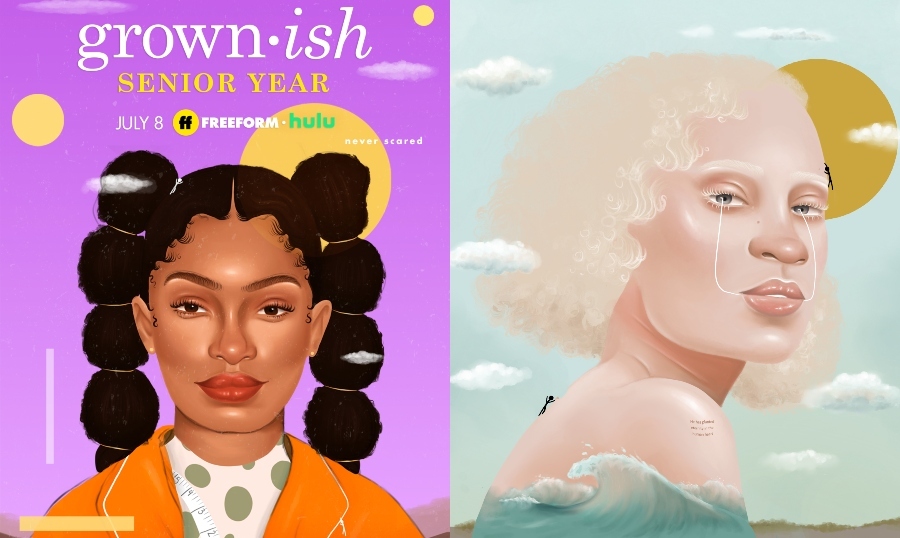
PHOTO: (Left / Right) Grown-ish Season 4 for Hulu / "Eternity" Courtesy Alexis Eke
You’ve been commissioned to do work for huge global brands, so your success as an illustrator and designer is unquestionable. But speaking about Black women in the world of traditional art you’ve said, “In traditional art spaces, Black women are brought in as moving parts, rarely entering these fields as a permanent feature.” As a successful illustrator and designer, do you care about being accepted into the traditional art world?
I’d say, yes and no. Since starting my career, I’ve had to make a space for myself rather than trying to force my way into the traditional art world. It’s something I’d like to venture into more and be more well acquainted with, but where I am now, I don’t feel a strong need to be recognized in that field.
I take it the traditional art world hasn’t embraced you, regardless of the commercial success you’ve had. What does that say to you about the barriers Black women artists specifically have to overcome?
Well, specifically for me, most of my work isn’t hand-painted so that would be an immediate barrier in my case. For Black women in general, I know the traditional art that is displayed doesn’t offer much representation of Black culture or work from artists from the African diaspora. It’s there, but there isn’t as much in Canada in terms of work being purchased and displayed in galleries. To start breaking that down would be difficult for the first few artists, but it will definitely open up in the future for younger Black women artists.
What is the importance of faith in guiding your career to where it is today?
It’s played a pretty big role. At the start of 2020, I really dedicated my career to God. I told God he had control over my career and wherever he wanted me to go, his will be done. I think doing that has brought me to places I never imagined I could go, to be honest. It’s given me a clear mind about not becoming too prideful over all the things I’ve accomplished so far and to understand why I’m making this work; to have a positive impact on the world and to glorify God. My faith driving my career has helped me to not get too caught up in trying to take on a bunch of projects to make a lot of money or have my name more known. I know that my career isn’t about myself, but rather about God and other people, so their lives can be impacted by the Lord.
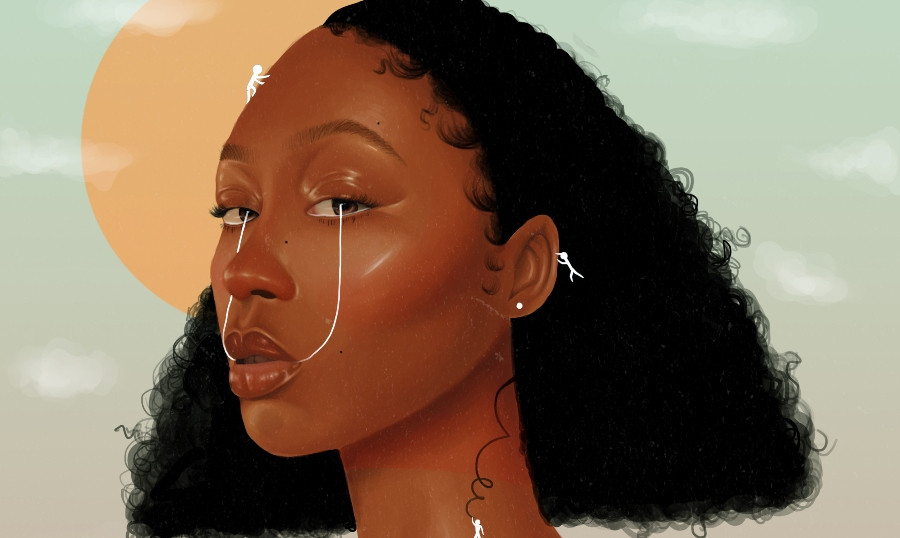
 By
By 

